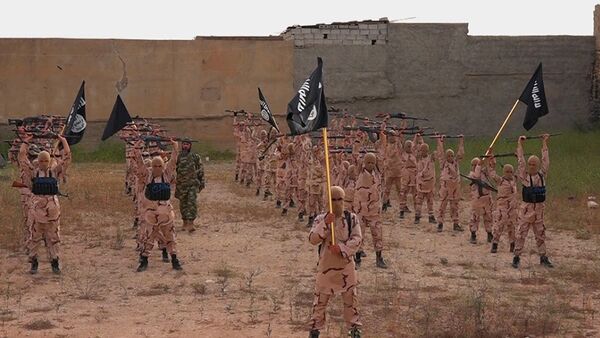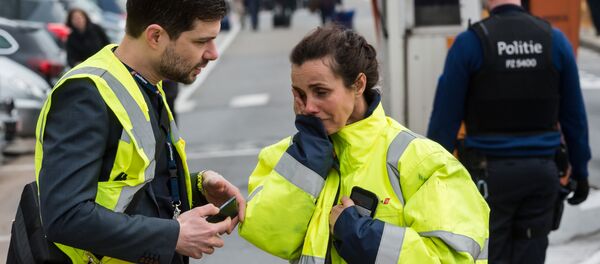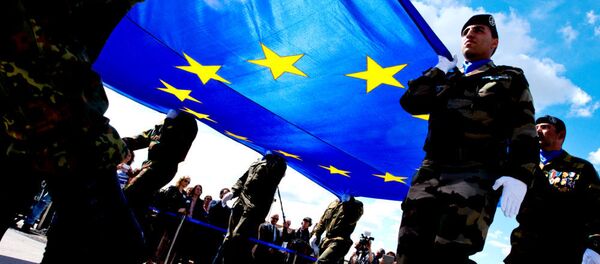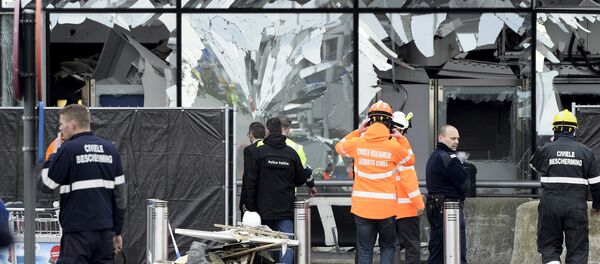"The network of agile and semiautonomous cells," AP warned, "shows the reach of the extremist group in Europe even as it loses ground in Syria and Iraq."
The warning comes from a number of European and Iraqi intelligence officials, as well as a French lawmaker familiar with jihadi networks.
The new training, one official told the news agency, means that the situation has changed dramatically since 2014. At that time, Daesh gave its fighters only a couple weeks-worth of training, meaning they were unprepared and easily detected by intelligence services. Now, the official noted, the strategy has changed, with Daesh spending more time training agents and forming special teams. Recruits are taught the tactics of warfare, explosives handling, surveillance techniques and how to defeat them, all of which makes the fight against them much more difficult and costly.
At the same time, speaking to Euronews, veteran terrorism expert Claude Moniquet suggested that Western intelligence services have had a hard time dealing with this new kind of threat, since they were formed and trained to fight against government structures, "states, political parties, the KGB, the Red Army and so on."
Moreover, Moniquet said, the kinds of terrorists Daesh has created are "not [even] like the jihadists of the past – of 10 to 15 years ago," but are "street kids…organized groups of hooligans…providing assistance to a friend," as in the case of Salah Abdeslam, one of the organizers of the Paris attacks.
Sapunov emphasized that without international coordination of counterterrorism efforts, the Europeans will have a hard time coping with this new wave of extremism.
"Security services around the world have documented such training; therefore, unfortunately, the information about hundreds of trained extremists in Europe may very well be true. Daesh has spent years developing and perfecting their skills. They succeeded in drawing a large number of people into their organization, and therefore the preparation of an extensive 'residency' in Europe is not impossible."
"But I expect that the secret services of European countries will be able to coordinate their professional efforts aimed at combating these phenomena, or have done so already."
"Today," the FSB officer noted, "it is impossible to exclude the entry of new terrorist elements via migratory flows. It is necessary to work with these channels, and to closely monitor the movement of militants whose identity has been established and is known to intelligence agencies not only in Europe, but in other countries as well."
Asked about the chances of such an organization actually being formed, the officer noted that "the voice of reason must be heard. Today one hears more and more comments, from politicians to professionals, on the need to combine our efforts."
"The main goal is to prevent such attacks – to work preventatively. Right now we are talking more about what has already happened. The attention of the special services must be concentrated on prediction and prevention. For this Europe's intelligence services have both the means and the capacity. I think that they have they have not lost their former mettle, and can counter the threat, if they work through their mistakes."
At the same time, Sapunov suggested, a key component in this hidden war must be the fight against the criminal element. "Today, many point to the fact that the criminal environment, in Belgium in particular, has become a breeding ground for terrorism. Brussels and other European cities have seen the emergence of ethnic enclaves in which the police are simple afraid to show themselves."
"But it's not just about the shortcomings of the security services. Often the problem lies in the fact that the law, or some other instructions, do not allow them to act – do not allow them to work in these enclaves, in order not to offend any ethnic group's feelings."
"European tolerance, cultivated by various public institutions, from the OSCE to PACE, has led to tragic consequences," the officer noted. "Of course, this does not mean that Europe should abandon its policy of tolerance, but it must work to change and to tighten up the tools used for counterterrorism, to create a clear front. This includes working against crime, and working among the youth."
"When it is said that young people are easily, quickly and quietly radicalized, imperceptibly to the security services, this is simply nonsense. Outcasts and riff raff are present in any environment, and identifying them is not so difficult, if one wants to do so. Russian security services have a wealth of experience in such work. Therefore, today, without losing another second, it's necessary to join our efforts and share experiences."
Ultimately, the FSB officer notes, what it comes down to "is whether Western countries are ready for a common struggle, or whether they are interested in other things."







